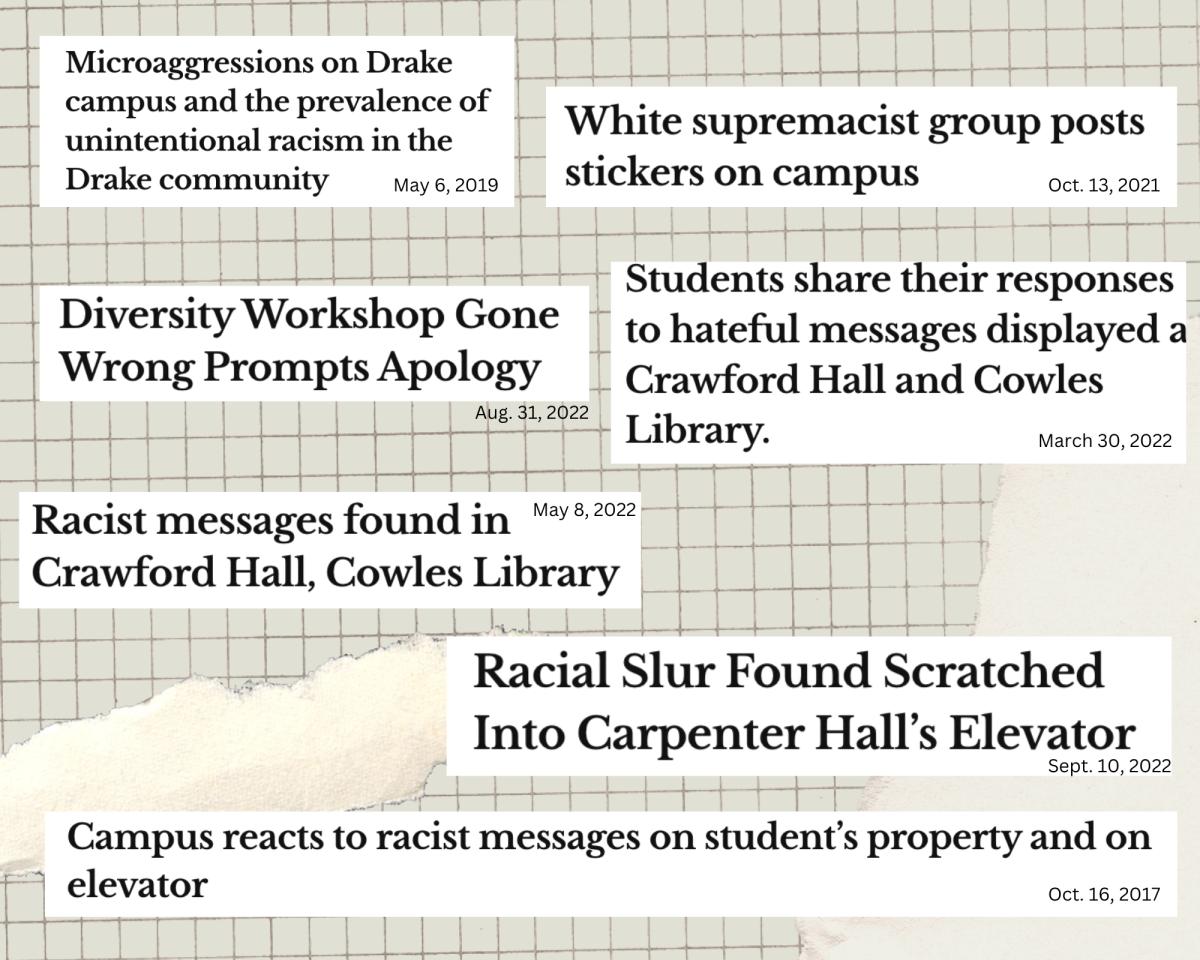Following racist incidents on campus and rising diversity in the student population, Drake University is implementing new efforts related to diversity, equity and inclusion (DEI).
This year, 29% of the incoming first-year class are students of color and/or international students, and racial/ethnic diversity in the student body has increased from 14% to 22% since 2015, according to the most recent data on the university’s website.
Jennifer Harvey, Drake’s associate provost for campus equity and inclusion, included a link to the first-year data in the third edition of Drake’s DEIJ (Diversity, Equity, Inclusion and Justice) monthly newsletter. Drake Provost Sue Mattison discussed it in the faculty senate meeting on Sept. 21.
“That is really awesome news and it certainly gives an imperative to all of us to get the DEIJ infrastructure and initiatives in place, not only for the right reasons of integrity and values and being on the right side of history, but for ensuring our relevance in the future,” Mattison said.
First-year Alyssa Galvez has grown frustrated with incidents that happened earlier this year, such as the writing of a racial slur on the Sprout Garden’s whiteboard. Galvez said that the Crew Scholars she talked to said this could have been checked beforehand because people were already in attendance, working at the garden, prior to when Crew Scholars arrived at Drake.
“Drake can’t control all of [their] students, but it seems like apologies are getting repetitive and it’s the same script,” Galvez said.
More apologies were sent out to first-year students due to the events of the You. Me. We. workshop. This interactive workshop was intended to strengthen relationships during Drake’s welcome week but instead resulted in animosity when students were handed an open mic.
In a campus-wide email in May, Harvey outlined a series of DEI initiatives that she said “a collaborative team of campus leaders” had identified in response to racist messages found in Drake buildings.
One of these initiatives was an incident response plan, which would determine best practices and the roles of campus leaders in Drake’s response to “acute incidents of racism, religious intolerance and/or other expressions of hostility and harm that target underrepresented communities,” Harvey said in the email.
Mattison said in faculty senate on Sept. 21 that a draft of the plan was expected by the end of September, with aims to finalize it in October after discussion and collaboration.
The Times-Delphic will provide more information about these initiatives in future coverage.
An increased focus on equity and inclusion in the Drake curriculum
This year, Drake’s curriculum includes a new Equity and Inclusion requirement. This can be met through an Area of Inquiry (AOI) or a major, minor or concentration course that fulfills the requirement. English professor Megan Brown said the requirement applies to Drake’s class of 2026 and future students.
Brown said she was part of the faculty senate committee that wrote a motion to create the requirement. She said there was a “groundswell” of student support for an AOI that addressed issues of identity and equity in the U.S.
“And I think that became especially pressing after some high-profile racist events, on campus but also nationwide,” Brown said. “The murder of George Floyd comes to mind…And so faculty were, I think, responding to [a] call from students, and wanting to find a way to include these concerns very directly into the Drake curriculum. So that’s how the idea kind of got going, as far as I understand it.”
Creating an Equity and Inclusion designation provided a compromise, Brown said, as there were concerns that adding another AOI would make it more difficult for students to graduate in four years.
Currently, 13 courses are listed as Equity and Inclusion courses on Drake’s website, six of which are politics courses. Courses that meet the requirement will enable students to analyze the effects of race, gender and other identities and how these categories are perceived or judged on U.S. socioeconomic and political systems, the webpage says.
Students in these courses will also be able to “reflect critically on their own positions within local, institutional and national contexts, including the ways in which these positions may be privileged, maligned, or excluded within these systems,” according to Drake’s website.
This article is the first of a Times-Delphic series about diversity, equity and inclusion on Drake’s campus.







